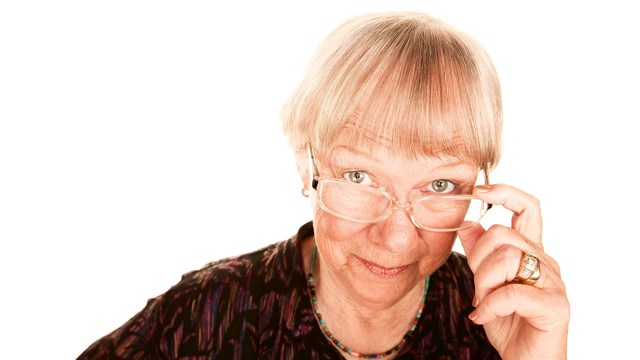Macular degeneration, or Age Related Macular Degeneration (ARMD), is a disease of the macula. The macula is the functional center of the retina. The retina is the light sensitive tissue that lines the inside of our eyes.
<!--body-->
The macula is the only part of the retina that is sensitive enough to give us 20/20 vision and to see colors well. It is that part of the retina we use when staring at something. It is that part of the retina that allows us to read and watch TV. Every other area of the retina serves us with our peripheral, or side, vision.
Types of Macular Degeneration - There are two types of ARMD; "wet" and "dry." Most cases of macular degeneration are "dry," or non-exudative. Vision slowly blurs over the years, in both eyes, but severe vision loss is less common. There is no cure or treatment for dry macular degeneration.
"Wet" macular degeneration is defined by the presence of abnormal blood vessels that develop, or grow, in between the layers of the retina. Vision loss typically is more rapid and severe than the dry counterpart. There is treatment for the "wet," or exudative, form of ARMD.
Symptoms of Macular Degeneration usually include blurry vision, distortion and dark spots in the vision. The disease usually affects both eyes and can affect those above the age of 55. There is a large correlation with those of northern European ancestry. There is an association with smokers and the wet form.
Eye Injections - There is no cure for either form of the disease. While there is a treatment for the "wet" form, this should not be misconstrued as a cure. The most popular treatment for the wet form is intraocular injections of medications which block the activity of Vascular Endothelial Growth Factor (VEGF). These anti-VEGF compounds neutralize this growth factor limiting further damage to the retina and, many times, allow some improvement in vision. Examples of anti-VEGF medications are; Macugen®, Lucentis® and Avastin®.
Vitamins are NOT a Cure despite what you may read on the web or elsewhere. Only one NIH study found that a special AREDS formulation was beneficial to a very small subset of patients with high risk macular degeneration. The vitamin world has spun this to mean that vitamins, spinach, lutein, etc. can cure macular degeneration. Not so.
The Age Related Eye Disease Study (AREDS) was a huge break through and only hints that changes in our diet may be beneficial. The actual data stated the following; the AREDS vitamins reduced the chances of severe vision loss in high risk patients. The risk was reduced from 28 percent to 21 percent. That's it!
A second study, AREDS 2, is underway and will look closer at what elements in our diet such as omega 3 fatty acids, lutein, xanthophylls and B-carotene might be beneficial for our eyes.
Randall V. Wong, M.D. is a retina specialist in Fairfax, Virginia. He has a strong interest in Web 2.0 strategies and believes that doctors should the be the source of reliable, credible health information on the internet.
He has a blog "focused" on macular degeneration and diabetic retinopathy; the two leading causes of adult blindness.





Add a Comment4 Comments
Glad I could be of some help. Happy Valentines' Day.
r
February 12, 2010 - 2:52pmThis Comment
Dr. Wong,
Thank you so much for your answer and the link! Your analogy with the freckles vs. the complexion makes a lot of sense to me. I'm glad to hear that macular degeneration (and all it includes) is not inherited the way I thought it was. My mom and sister will be happy to hear it as well!
February 12, 2010 - 8:35amThis Comment
Dear Diane,
Macular degeneration is a so-called "waste basket" term. It includes a variety of diseases that look, and behave, the same way. Most cases of "macular degeneration" are not heritable. Historically, there have been a few families where the macular degeneration was passed on from one generation to the next, but these instances are quite rare.
There seems, at best, a genetic predisposition, or risk, however, for developing the disease. Blue eyes, northern European ancestry, etc. seem to put you at risk.
An example I use frequently, do patients with freckles get more skin cancer because they inherit it or because their genetically lighter skin make them more prone to developing it?
See if this article helps: http://retinaeyedoctor.com/2009/08/macular-degeneration-is-not-inherited/
Thanks for your comment!
Randy
February 11, 2010 - 10:35amwww.RetinaEyeDoctor.com
This Comment
Dr. Wong,
This is a fascinating post. My maternal grandmother had macular degeneration, and so of course I am concerned for both my mother and myself. I am wondering if you can tell me how strong the genetic link is, and whether this is most often an every-generation or an every-other-generation disease? Thank you so much. I'll look at your blog with interest.
February 11, 2010 - 9:19amThis Comment